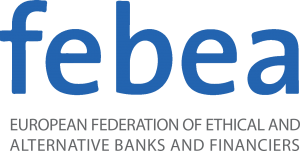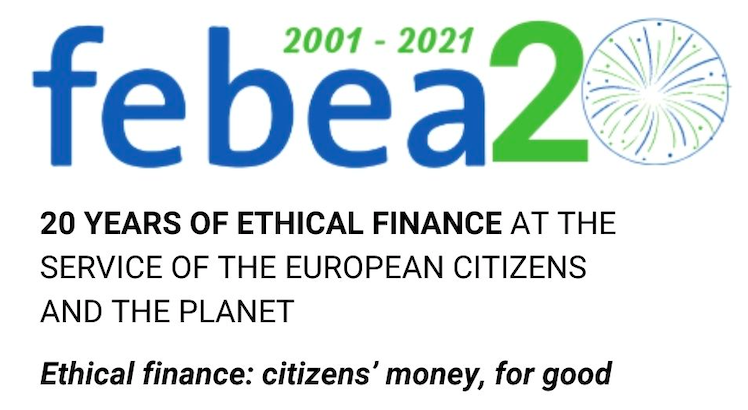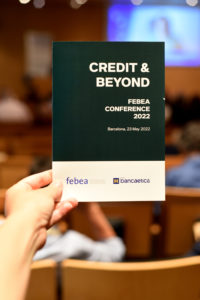The FEBEA Annual conference 2021 was held on the 10th June 2021, for the first time in a digital format. The event was the occasion to celebrate the 20 years of the Federation, during which Ethical Finance organisations contributed to the development of the social economy community in Europe and to the promotion of a committed role of financial institutions.
More than 100 participants, practitioners of ethical finance and social economy and European policy makers, attended the event and contributed to the exchange.
The event was organised in collaboration with our partner Social Economy Europe.
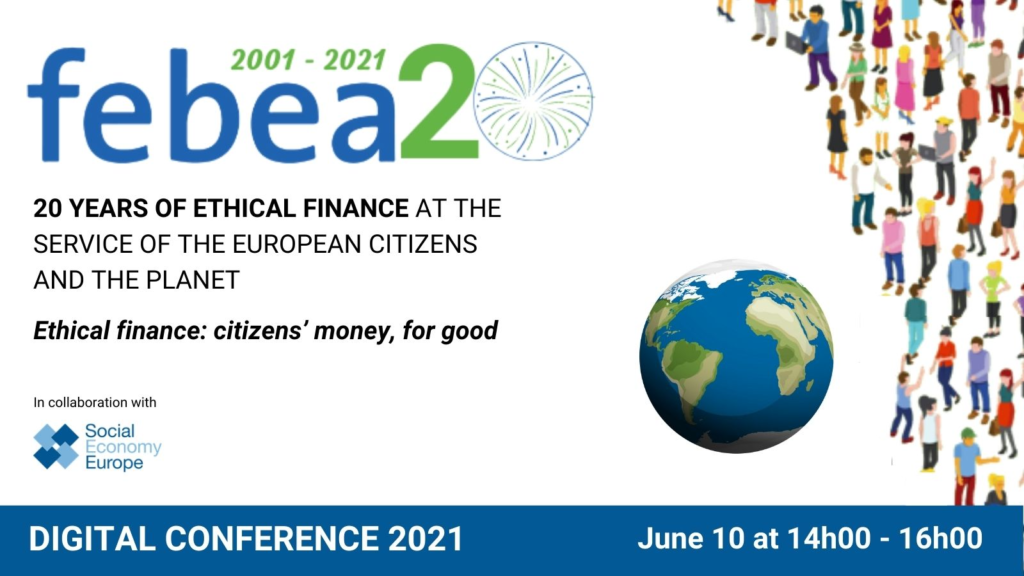
The event was opened by FEBEA Chairman Pedro Sasia, who highlighted the cultural role of Ethical finance organisations in the past decades, contributing to shape todays’s debate on sustainable finance.
FEBEA today promotes a vision of sustainable finance which goes beyond the “product” logic, embracing instead the whole organisation approach and its culture.

This vision is based on specific characteristics of Ethical Finance organisations such as:
- The capacity to incorporate private funds into public policies to support the social and solidarity economy;
- a shared culture, supported by highly participatory governance models;
- a territorial rooting;
- a deep knowledge of the social and solidarity economy.
For the future, 3 important development axes await FEBEA and its members. On the one hand, the strengthening of the relations with citizens; secondly, the adaptation of the regulatory frameworks recognising ethical finance’s specificity; finally, a legitimacy built on the interaction with the public administrations and other social agents.
“The history of Febea is the history of 20 years of incidence in the financial system, influencing many behaviours, among which the financing of renewable energy or recovered companies, the introduction of rigours social and economic evaluation processes for financing requests, the remuneration policies, the governance models, or even the profit approach itself. Many of these behaviours have been incorporated as usual practices today by a good number of financial operators, but so many others remain. Following this path is our commitment for the next 20 years.”
Nicolas Schmit, European Commissioner for Jobs and Social Rights intervened recognising the important role of Ethical Finance in the past decades.
In the present context, the Commissioner highlighted the importance for Ethical Finance organisations to contribute to the green and digital transitions policies and instruments being developed at European level.
The Commissioner called for Ethical Finance collaboration in 3 main axes of the European policies:
– the implementation of financial instruments dedicated to social economy under the Social investments and Skills window of the InvestEU programme, to address existing financing gaps for social economy organisations;
– the development of the renewed EU sustainable finance strategy, including its possible extension to social activities;
– developing Ethical Finance tools in other countries and continue to promote the financing of social economy organisations, in collaboration with public authorities pursuing EU policies

“Ethical finance organisations have certainly been pioneers on the path towards sustainable finance and in the past years FEBEA has significantly contributed to EU social policy objectives and more broadly also to the UN SDGs.”
“Ethical and social finance providers will play a key role in addressing this gap, therefore with InvestEU and forthcoming Action Plan we aim to continue supporting these intermediaries in their efforts to reach out to more organisations, to build their capacity and to professionalise themselves”
“I can reassure you of the Commission’s continuous support to the ethical finance principles in Europe themselves”
Juan Antonio Pedreno, President of Social Economy Europe also congratulates FEBEA for 20 years of Ethical Finance building a financial system more responsible, more transparent, more committed to local development, at the service of the citizens and planet.
Ethical Finance has been indeed working for decades in what today is called “impact investing”, and this work needs to be recognised.
Ethical Finance works with Social Economy organisations as the democratic muscle of Europe, supporting ecological and fair transition, circular economy, democratic and participatory processes.
FEBEA has been working at European level to further support the social economy policies, contributing in particular to the financial part of the Social Economy plan proposals presented by Social Economy Europe. The presence today of the Commissioner is an important recognition of this work, and highlights the need to scale up the presence at European level, as protagonist of policies for the social innovation and cohesion, the fight of inequalities, the green and fair transition.
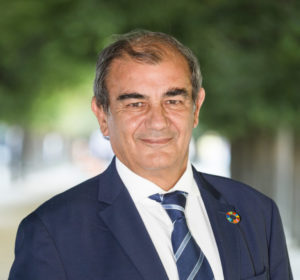
“This is the moment for social Economy and Ethical Finance in Europe. We need to be unified in this moment and strengthen our role in the dialogue with European Institutions.
Mobilising private and private financing for social economy will be fundamental to be at the center of the European debate on social economy.”
Sven Giegold (MEP) highlighted the role of Ethical finance in relation to several key policy issues.
First, in relation to the the Green Deal, as the promise to transform our economies in a sustainable way, leaving no one behind: the European sustainable finance strategy does not go as far as the Ethical Finance mission statement, but is a huge step forward.
He also agrees on how some Ethical Finance practices have become mainstream – which of course entails also a risk of diluting its key ideas. This is happening on some issues related to the taxonomy on sustainable finance, such us nuclear energy, forestry practices, etc.
Beyond green, also social and governance elements should be taken in consideration in the sustainable finance strategy – as already done by Ethical Finance.
However, finance alone is not enough: carbon pricing factors, incentives and regulations are also necessary to have an impact on the market.
Finally, to foster sustainable growth, it is fundamental also to review the financial regulatory framework: the recent EBA report includes the reduction of unnecessary reporting burden on smaller banks. While this goes in the fight direction, the regulatory framework still imposes a disproportionate burden to small banks in relation to systemic ones.
Given their expertise, FEBEA and its members are invited to share their proposals on capital requirements and the sustainable finance strategy to contribute to the European debate.

“This is not a technical debate – this is a deeply political debate. Because If we have managed to obtain that companies have to become transparent on how many of their activities are sustainable or not and how many do harm or do not harm – the more important it is that we get these definitions right.”
Andrea Baranes of Banca Etica reminds that in a context where all financial intermediaries claim to be sustainable, independent reports show that in the last year only big mainstreaming banks provided more than 4k billions dollars financing to the fossil fuels industry.
Concrete actions are needed in this regard. While the European sustainable finance strategy is welcome, we need a much broader definition of sustainability.
Another risk is determined by banking concentration in several EU countries: we are losing banking biodiversity, while we need different banking models to serve different sectors and different demands.
The mainstream financial sector is not fulfilling its social role of proving credit to the real economy: ethical and alternative banks disburse double the credit with respect to normal banks.
This highlights the importance for Ethical Finance to continue its advocacy work at European level, to demonstrate its fundamental work for the implementation of economic and social policies.
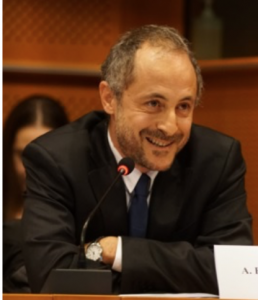
“We need a much broader vision on sustainability that has to take into account all the social and governmental issues”.
Isabelle Philippe of Credal reminds the importance of the participatory approach adopted by Credal and Ethical Finance organisations: citizens choose to invest their savings in Credal because they want to give meaning to their money.
In Credal, all the collected funds are used to provide credit to the social economy: this is possible also thanks to a close collaboration with public authorities.
This dynamic creates a virtuous circle connecting several actors: citizens investing money, ethical finance providing credits, public authorities providing guarantees, foundations supporting social innovation projects and volunteers collaborating with the beneficiary projects.
The collaboration with other ethical finance actors is fundamental to scale-up the financing capacity and the capacity to transform society, fighting inequality.

“Ethical Finance works with citizens’ savings, in close collaboration with public authorities, to respond to local needs. Thanks to this dynamic, Ethical Finance organisations act on both the causes and the consequences of inequalities.”.
Panagiotis Tournavitis of cooperative Bank of Karditsa (Greece) showed that their ethical finance approach proved able to overcome the financial / monetary crisis and recent climate adverse events affecting Greece and the Karditsa region, while never needing any state aid.
This was possible providing support to the local economy, understanding the needs of each client and acting swiftly to support entrepreneurs, households and social organisations.
The essence of Ethical finance work is indeed to support local economy and leverage economic capacity that serves people.

“We are defined by actions and not by intentions: Ethical banking for us is the only way of doing business all these years”.
Marlène Fargues of France Active describes the actions undertaken for the support to social economy organisations during the crisis by listening to their needs, providing financing and non financial support services.
She highlights their needs to redefine their strategy, given that they are often characterised by the low level of equity and a significant debt: social economy organisations need long term financing, and the support of the EU instruments (in particular in terms of guarantees) is fundamental.
Also, social economy organisations will need strong support for the digitisation of their operations, the creation of partnerships and networks, and capacity building.
Once again, the European support will be fundamental to develop these services, and in particular regarding seed capital funding for new social initiatives:

“We have to support social innovation start-ups, working on social inclusion, environmental projects and local development. EthicalFinance acts to foster cooperation and innovation at local level, supporting citizens’ initiatives”
.
Lars Pehrson, Founder of Merkur Bank provided a historical perspective on how Ethical Finance has been shaping a finance model dedicated to the real and social economy.
Indeed, Ethical finance’s core value is to take into account the long term effects of finance.
In this sense, Merkur bank has paved the way for the financing of organic farming and food, wind energy, eco-construction, etc and also more recently for sustainable investment products.
Ethical banks are historical partners of the social sector, and in nordic EU countries they contributed to revitalising the cooperative ownership of banks. Once again, the biodiversity of the financial sector is fundamental. In this perspective, more and more customers should be encouraged to invest in their own bank, to participate and be engaged in the financing process of their community – the consumers protection regulation should be adapted to promote a more engaged role of citizens.

“Finance is about co-creating the future – if you give a credit you are co-creating a future you believe in”
Dominique Lesaffre, SIDI highlights the main points emerged form the exchange, which should be the pillars to shape the next 20 years of Ethical Finance:
- collaborate with European institutions on sustainable finance and regulations;
- work on the concept of banking biodiversity at national and European level;
- promote citizens engagement: ethical finance has to provide concrete solutions to people, in particular the ones excluded by economic and social dynamics;
- the essential role of a constructive dialogue with public authorities at all levels;
- being rooted in the territory to give substance to sustainability, from a financial and social perspective;
- listen to the demande and needs on the ground, to provide concrete answers
foster a long term approach on all financial activities.
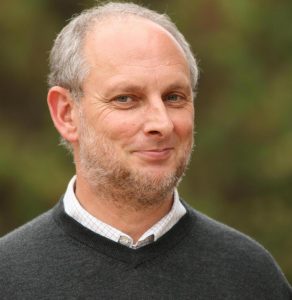
“Ethical Finance is about long term perspective, transparency, participation, and citizens’ engagement”
Bernard Horenbeek of La Nef reminds how in 2008, during the financial crisis, Ethical banks demonstrated their strength and solidity, based on real economy support, transparence, solidarity.
Despite this, ethical banks were not recognised in the following phase of renewed banking regulations – the recent news about possible adaptation of regulation requirements for small banks is therefore very welcome, even if a lot more remains to be done in this field.
Finally, green washing and social washing is a now a challenge for Ethical Finance. Ethical finance has to demonstrate that it is truly green, truly social with regard. In this context FEBEA members should focus on the word “Ethical” – which remains their prerogative -to scale-up their activities.

“ In the aftermath of this new crisis, Ethical Finance needs to focus on the real economy, local dimension and proximity- which are its essential elements, as clearly demonstrated by the experience in the Karditsa region. This underlines the importance of being able to capture and respond to the local needs – in this sense, the alliance with public authorities at all levels remains a must.”
Daniel Sorrosal, Secretary General of FEBEA concludes the event thanking Social Economy Europe for their support and reminding the need to open the Ethical Finance message to a wider public – a series of initiatives are being organised in this sense, including an upcoming podcast.

“We look forward to another 20 years of FEBEA spreading the message of Ethical Finance in Europe, contributing to create a better society for future generations.”
